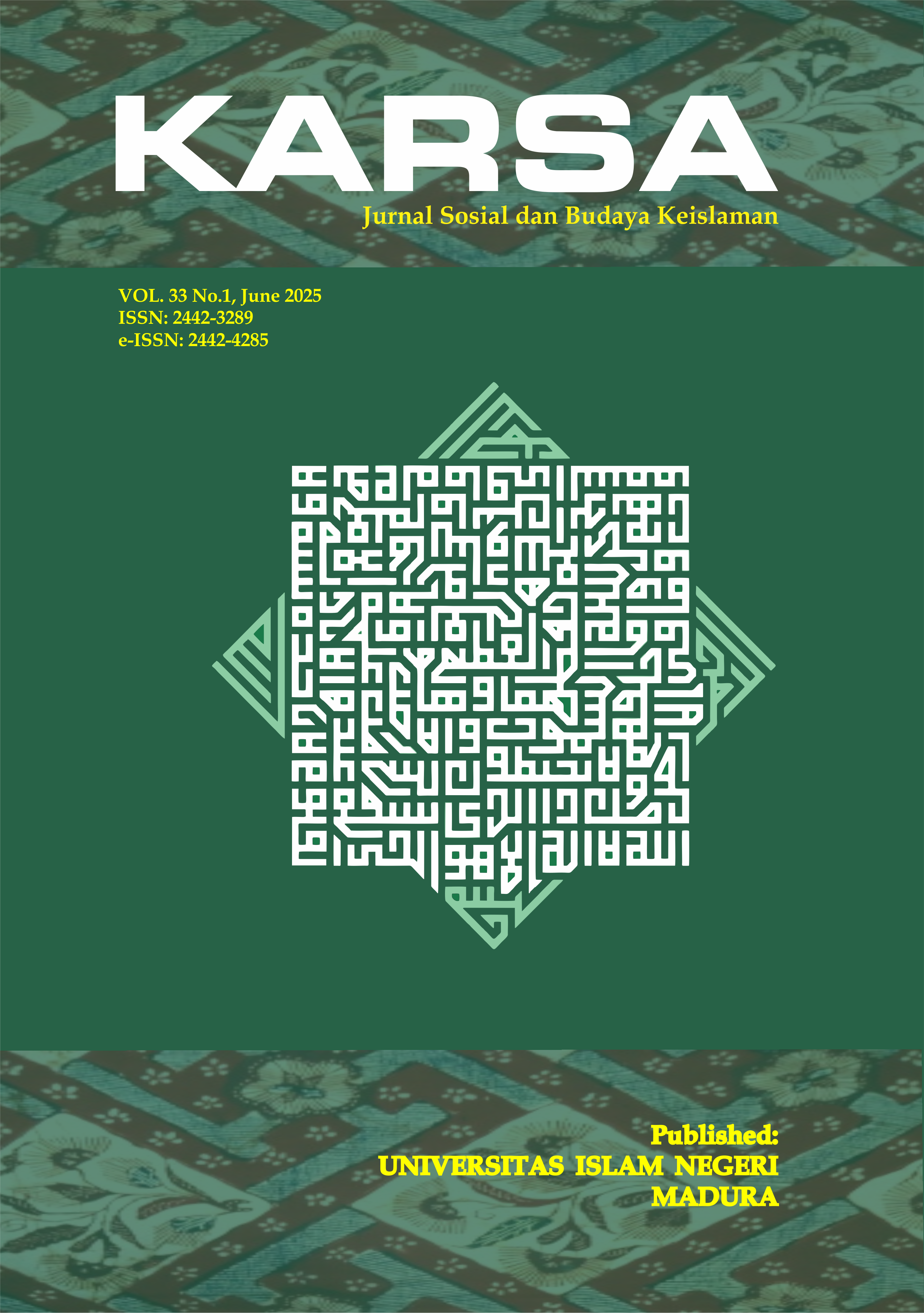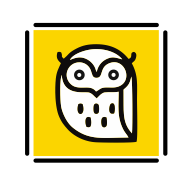Eco-Linguistics in Action: Themes and Trends in Environmental Projects
 Abstract views: 403
,
Abstract views: 403
,
 PDF downloads: 116
PDF downloads: 116
Abstract
Environmental project-based language learning (EPBLL) is a promising approach for promoting language acquisition, environmental consciousness, and sustainable education among young learners. However, the present state of research on EPBLL in English language education for early learners needs to be better understood. This bibliometric study examines the state of EPBLL research over the past ten years. We conducted a bibliometric analysis of articles published between 2013 and 2023 that met our inclusion criteria using Scopus. Our analysis focused on publication trends, journal sources, citation counts, and identifying major research topics and themes in EPBLL research. Our study found a steady increase in EPBLL publications over the past ten years, with numerous journals contributing to this research field. We identified several important themes and areas of emphasis, such as the role of technology in EPBLL, the impact of EPBLL on language acquisition and environmental awareness, and the effectiveness of various pedagogical approaches to EPBLL. Our findings have significant implications for educators, researchers, and policymakers promoting sustainable education and language acquisition through project-based learning. This study provides insights into the state of EPBLL research in English language education for young learners and highlights essential research themes that can inform future studies in this area.
Downloads
References
Abu Bakar, Noor Idayu, Nooreen Noordin, and Abu Bakar Razali. “Improving Oral Communicative Competence in English Using Project-Based Learning Activities.” English Language Teaching 12, no. 4 (March 14, 2019): 73–84. https://doi.org/10.5539/elt. v12n4p73.
Ahmad, Nor Lela. “Conceptualizing Green Education Awareness in Primary School to Promote Sustainability.” Nóesis Revista de Ciencias Sociales 4, no. 17 (2019): 22–30. https://www.researchgate.net/publication/337337599
Aikens, Kathleen, Marcia McKenzie, and Philip Vaughter. “Environmental and Sustainability Education Policy Research: A Systematic Review of Methodological and Thematic Trends.” Environmental Education Research 22, no. 3 (April 2, 2016): 333–59. https://doi.org/10.1080/13504622.2015.1135418.
Almulla, Mohammed Abdullatif. “The Effectiveness of the Project-Based Learning (PBL) Approach as a Way to Engage Students in Learning.” Sage Open 10, no. 3 (July 5, 2020): 2158244020938702. https://doi.org/10.1177/2158244020938702.
Anunti, Henna, Anne Pellikka, Essi Vuopala, and Jarmo Rusanen. “Digital Story Mapping with Geomedia in Sustainability Education.” International Research in Geographical and Environmental Education 32, no. 3 (July 3, 2023): 197–216. https://doi.org/10.1080/10382046.2023.2183549.
Assaf, Dareen. “Motivating Language Learners during Times of Crisis through Project-Based Learning: Filming Activities at the Arab International University (AIU).” Theory and Practice in Language Studies 8, no. 12 (December 1, 2018): 1649. https://doi.org/10.17507/tpls.0812.10.
Barrable, Alexia. “Refocusing Environmental Education in the Early Years: A Brief Introduction to a Pedagogy for Connection.” Education Sciences 9, no. 1 (March 19, 2019): 61. https://doi.org/10.3390/educsci9010061.
Beckett, Gulbahar H., and Tammy Slater. “Technology‐Integrated Project‐Based Language Learning.” In The Encyclopedia of Applied Linguistics, 1–8. Wiley, 2018. https://doi.org/10.1002/ 9781405198431.wbeal1487.
Buchanan, John, Kimberley Pressick-Kilborn, and Damian Maher. “Promoting Environmental Education for Primary School-Aged Students Using Digital Technologies.” EURASIA Journal of Mathematics, Science and Technology Education 15, no. 2 (December 10, 2018). https://doi.org/10.29333/ejmste/100639.
Chang, Shu-Hsuan, Li-Chih Yu, Yen-Kuang Kuo, Yi-Ting Mai, and Jen-De Chen. “Applying Online Peer Assessment With Total Quality Management to Elevate Project-Based Learning Performance.” Journal of Baltic Science Education 14, no. 3 (June 30, 2015): 379–90. https://doi.org/10.33225/jbse/15.14.379.
Chen, Sibo. “Language and Ecology: A Content Analysis of Ecolinguistics as an Emerging Research Field.” Ampersand 3 (2016): 108–16. https://doi.org/10.1016/j.amper.2016.06.002.
Chiriac, Mona Lissa, and Corneliu Iațu. “What Do Secondary School Students in North-East Romania Know and Think about Sustainable Development?” International Research in Geographical and Environmental Education 32, no. 4 (October 2, 2023): 305–22. https://doi.org/10.1080/10382046.2023.2183548.
Cole, Laura B., and Elke Altenburger. “Framing the Teaching Green Building: Environmental Education through Multiple Channels in the School Environment.” Environmental Education Research 25, no. 11 (November 2, 2019): 1654–73. https://doi.org/10.1080/ 13504622.2017.1398817.
Collado, Silvia, Claudio D. Rosa, and José A. Corraliza. "The Effect of a Nature-Based Environmental Education Program on Children's Environmental Attitudes and Behaviors: A RandRandomizederiment with Primary Schools." Sustainability 12, no. 17 (August 22, 2020): 6817. https://doi.org/10.3390/su12176817.
Diab, Ashadi L., Mustaqim Pabbajah, Ratri Nurina Widyanti, Lian Mulyani Muthalib, and Widi Fajar Widyatmoko. “Accommodation of Local Wisdom in Conflict Resolution of Indonesia’s Urban Society.” Cogent Social Sciences 8, no. 1 (2022). https://doi.org/10.1080/23311886.2022.2153413.
Fadjarajani, S, and R As’ari. “Ecopedagogy Based Learning as an Effort to Increase Student Ecoliteration and the Development of Environmental Care Characters.” IOP Conference Series: Earth and Environmental Science 683, no. 1 (March 1, 2021): 012046. https://doi.org/10.1088/1755-1315/683/1/012046.
Ghosheh Wahbeh, Dua’, Eman A. Najjar, Adel F. Sartawi, Maysa Abuzant, and Wajeeh Daher. “The Role of Project-Based Language Learning in Developing Students’ Life Skills.” Sustainability 13, no. 12 (June 8, 2021): 6518. https://doi.org/10.3390/su13126518.
Gong, Yang, Boning Lyu, and Xuesong Gao. “Research on Teaching Chinese as a Second or Foreign Language in and Outside Mainland China: A Bibliometric Analysis.” The Asia-Pacific Education Researcher 27, no. 4 (August 23, 2018): 277–89. https://doi.org/10.1007/s40299-018-0385-2.
Güler Yıldız, Tülin, Naciye Öztürk, Tülay İlhan İyi, Neşe Aşkar, Çağla Banko Bal, Sibel Karabekmez, and Şaban Höl. “Education for Sustainability in Early Childhood Education: A Systematic Review.” Environmental Education Research 27, no. 6 (June 3, 2021): 796–820. https://doi.org/10.1080/13504622.2021.1896680.
Gürsoy, Esim. “Implementing Environmental Education to Foreign Language Teaching to Young Learners.” Educational Research 1, no. 8 (2010): 232–38. https://www.interesjournals.org/articles/ implementing-environmental-education-to-foreignlanguage-teaching-to-young-learners.pdf.
Guzman-Orth, Danielle A., Alexis A. Lopez, and Florencia Tolentino. “Exploring the Use of a Dual Language Assessment Task to Assess Young English Learners.” Language Assessment Quarterly 16, no. 4–5 (October 20, 2019): 447–63. https://doi.org/10.1080/15434303.2019.1674314.
Hauschild, Staci, Elena Poltavtchenko, and Fredricka L. Stoller. “Going Green: Merging Environmental Education and Language Instruction.” English Teaching Forum 50, no. 2 (2012): 2–13. https://eric.ed.gov/?id=EJ982843.
Hoffmann, Roman, and Raya Muttarak. “Greening through Schooling: Understanding the Link between Education and pro-Environmental Behavior in the Philippines.” Environmental Research Letters 15, no. 1 (January 1, 2020): 014009. https://doi.org/10.1088/1748-9326/ab5ea0.
Hyland, Ken, and Feng (Kevin) Jiang. “A Bibliometric Study of EAP Research: Who Is Doing What, Where and When?” Journal of English for Academic Purposes 49 (January 2021): 100929. https://doi.org/10.1016/j.jeap.2020.100929.
Imelda, Imelda, Bambang Yudi Cahyono, and Utari Praba Astuti. “Effect of Process Writing Approach Combined with Video-Based Mobile Learning on Indonesian EFL Learners’ Writing Skill across Creativity Levels.” International Journal of Instruction 12, no. 3 (July 3, 2019): 325–40. https://doi.org/10. 29333/iji.2019.12320a.
Johns, Rebecca A., and Rachelle Pontes. “Parks, Rhetoric and Environmental Education: Challenges and Opportunities for Enhancing Ecoliteracy.” Journal of Outdoor and Environmental Education 22, no. 1 (March 15, 2019): 1–19. https://doi.org/ 10.1007/s42322-019-0029-x.
Juhriati, I, I Rachman, and K Yayoi. “The Best Practice of Ecoliteracy Based on Social Culture.” IOP Conference Series: Earth and Environmental Science 802, no. 1 (June 1, 2021): 012012. https://doi.org/10.1088/1755-1315/802/1/012012.
Kahn, Richard. Critical Pedagogy, Ecoliteracy, & Planetary Crisis: The Ecopedagogy Movement. Lausanne: Peter Lang Pub Inc, 2010.
Karakaya, Kadir, and Aras Bozkurt. “Mobile-Assisted Language Learning (MALL) Research Trends and Patterns through Bibliometric Analysis: Empowering Language Learners through Ubiquitous Educational Technologies.” System 110 (November 2022): 102925. https://doi.org/10.1016/j.system.2022.102925.
Kim, GoWoon, Rahul Vaswani, Wanmo Kang, Miri Nam, and Dowon Lee. “Enhancing Ecoliteracy through Traditional Ecological Knowledge in Proverbs.” Sustainability 9, no. 7 (July 6, 2017): 1182. https://doi.org/10.3390/su9071182.
Ki̇msesi̇z, Fatma. “The Effect of Project Based Learning in Teaching EFL Vocabulary to Young Learners of English: The Case of Pre-School Children.” International Journal of Languages’ Education 1, no. 4 (January 1, 2017): 426–39. https://doi.org/10.18298/ijlet.2168.
MacDonell, Colleen. Project-Based Inquiry Units for Young Children: First Steps to Research for Grades Pre-K-2. Washington: Linworth, 2006.
Maulidah, Neni, Sunanih, Rahman, and Nana Supriatna. “Creative Play and Learning in Natural Environment to Develop Creative-Ecoliteracy in Elementary School Students.” Journal of Physics: Conference Series 1764, no. 1 (February 1, 2021): 012112. https://doi.org/10.1088/1742-6596/1764/1/012112.
Meline, Timothy. “Selecting Studies for Systemic Review: Inclusion and Exclusion Criteria.” Contemporary Issues in Communication Science and Disorders 33, no. Spring (March 2006): 21–27. https://doi.org/10.1044/cicsd_33_S_21.
Moher, David, Alessandro Liberati, Jennifer Tetzlaff, and Douglas G. Altman. “Preferred Reporting Items for Systematic Reviews and Meta-Analyses: The PRISMA Statement.” PLoS Medicine 6, no. 7 (July 21, 2009): e1000097. https://doi.org/10.1371/journal. pmed.1000097.
Monroe, Martha C., Richard R. Plate, Annie Oxarart, Alison Bowers, and Willandia A. Chaves. “Identifying Effective Climate Change Education Strategies: A Systematic Review of the Research.” Environmental Education Research 25, no. 6 (June 3, 2019): 791–812. https://doi.org/10.1080/13504622.2017.1360842.
Mullenbach, Lauren E., Rob G. Andrejewski, and Andrew J. Mowen. “Connecting Children to Nature through Residential Outdoor Environmental Education.” Environmental Education Research 25, no. 3 (March 4, 2019): 365–74. https://doi.org/10.1080/ 13504622.2018.1458215.
Muthukrishnan, Rani. “Using Picture Books to Enhance Ecoliteracy of First-Grade Students.” The International Journal of Early Childhood Environmental Education 6, no. 2 (2019): 19–4. https://files.eric.ed.gov/fulltext/EJ1225653.pdf.
Nadiroh, Nadiroh, Uswatun Hasanah, and Vania Zulfa. “Behavioral Geography: An Ecoliteracy Perspective and Critical Thinking Skills in Men and Women.” Indonesian Journal of Geography 51, no. 2 (August 30, 2019): 114–22. https://doi.org/10.22146/ijg. 36784.
Parker, Lyn. “Environmentalism and Education for Sustainability in Indonesia.” Indonesia and the Malay World 46, no. 136 (September 2, 2018): 235–40. https://doi.org/10.1080/13639811. 2018.1519994.
Paulsen, Christine Andrews, Erin Carroll, Olivia Paulsen, and Jessica Rueter Andrews. “Engaging Children and Families in Active, Environmental Science Learning through Digital Media.” International Journal of Early Childhood Environmental Education 8, no. 2 (2021): 43–58.
Pratiwi, Tri, Sufyarma Marsidin, Hermawati Syarif, and Yahya Yahya. “Directed – Project Based Learning (DPjBL) as a Language Learning Model to Improve Students’ English Achievement.” In Proceedings of the International Conferences on Educational, Social Sciences and Technology - ICESST 2018, 18–23. Padang: Fakultas Ilmu Pendidikan, 2018. https://doi.org/10.29210/201813.
Puangpunsi, Nualpen. “Learners’ Perception towards Project-Based Learning in Encouraging English Skills Performance and 21 St Century Skills.” THAITESOL JOURNAL 34, no. 1 (2021). http://files.eric.ed.gov/fulltext/EJ1304647.pdf.
Putri, Maharani Ayu Nurdiana, Erina Krisnaningsih, Nadi Suprapro, Utama Alan Deta, and Dwikoranto Dwikoranto. “Project-Based Learning (PjBL)-STEM: Bibliometric Analysis and Research Trends (2016-2020).” Berkala Ilmiah Pendidikan Fisika 9, no. 3 (November 10, 2021): 368–80. https://doi.org/10.20527/bipf. v9i3.11184.
Rachmajanti, Sri, Mirjam Anugerahwati, and Frida Unsiah. “A Profile of Primary School Students’ Literacy Through EMI in CLIL Contexts.” JEES (Journal of English Educators Society) 8, no. 2 (November 11, 2023): 221–26. https://doi.org/10.21070/jees. v8i2.1802.
Rahmayanti, Henita, Ilmi Zajuli Ichsan, Sylvira Ananda Azwar, Dian Alfia Purwandari, Nurlita Pertiwi, Charanjit Kaur Swaran Singh, and Paulo Weslem Portal Gomes. “Difmol: Indonesian Students’ Hots and Environmental Education Model During COVID-19.” Journal of Sustainability Science and Management 15, no. 7 (October 1, 2020): 10–19. https://doi.org/10.46754/JSSM.2020. 10.002.
Ramadhan, S, E Sukma, and V Indriyani. “Environmental Education and Disaster Mitigation through Language Learning.” IOP Conference Series: Earth and Environmental Science 314, no. 1 (August 1, 2019): 012054. https://doi.org/10.1088/1755-1315/314/1/012054.
Rymanowicz, Kylie, Chelsea Hetherington, and Brooke Larm. “Planting the Seeds for Nature-Based Learning: Impacts of a Farm- and Nature-Based Early Childhood Education Program.” International Journal of Early Childhood Environmental Education 8, no. 1 (2020): 44–63.
Savelyeva, Tamara, and Jae Park. “Blockchain Technology for Sustainable Education.” British Journal of Educational Technology 53, no. 6 (November 15, 2022): 1591–1604. https://doi.org/10.1111/bjet.13273.
Subroto, Farouq Aji, Yazid Basthomi, and Utari Praba Astuti. “Teachers Talking in Very Young Learners Immersion Class: How They Did It.” Jurnal Pendidikan: Teori, Penelitian, Dan Pengembangan 5, no. 12 (December 29, 2020): 1694. https://doi.org/10.17977/jptpp.v5i12.14210.
Susanti, Arik, Sri Rachmajanti, Nunung Suryati, and Utari Praba Astuti. “Online Project-Based Learning and Critical Thinking Skills: A Case Study in Tertiary Education.” In Proceedings of the International Joint Conference on Arts and Humanities 2022 (IJCAH 2022), 992–1002, 2023. https://doi.org/10.2991/978-2-38476-008-4_105.
Trott, Carlie D. “Children’s Constructive Climate Change Engagement: Empowering Awareness, Agency, and Action.” Environmental Education Research 26, no. 4 (April 2, 2020): 532–54. https://doi.org/10.1080/13504622.2019.1675594.
Utari, Dwi, and Achmad Ruslan Afendi. “Implementation of Pancasila Student Profile in Elementary School Education with Project-Based Learning Approach.” EduLine: Journal of Education and Learning Innovation 2, no. 4 (November 1, 2022): 456–64. https://doi.org/10.35877/454RI.eduline1280.
Wallace, Heather D. “Transdisciplinary Learning in a Kitchen Garden: Connecting to Nature and Constructing a Path to Ecoliteracy?” International Research in Geographical and Environmental Education 28, no. 4 (October 2, 2019): 309–23. https://doi.org/10.1080/10382046.2019.1646013.
Wolf, Mikyung Kim, and Yuko Goto Butler. English Language Proficiency Assessments for Young Learners. New York, NY: Routledge, 2017. https://doi.org/10.4324/9781315674391.
Wu, Manfred Man-fat. “Second Language Teaching for Global Citizenship.” Globalization, Societies and Education 18, no. 3 (May 26, 2020): 330–42. https://doi.org/10.1080/14767724.2019. 1693349.
Zhang, Xian. “A Bibliometric Analysis of Second Language Acquisition Between 1997 and 2018.” Studies in Second Language Acquisition 42, no. 1 (March 25, 2020): 199–222. https://doi.org/10.1017/S0272263119000573.
Zhou, Wenjuan. “Ecolinguistics: A Half-Century Overview.” Journal of World Languages 7, no. 3 (February 26, 2022): 461–86. https://doi.org/10.1515/jwl-2021-0022.
The journal operates an Open Access policy under a Creative Commons Non-Commercial Share-Alike license. Authors who publish with this journal agree to the following terms:
- Authors retain copyright and grant the journal right of first publication with the work simultaneously licensed under a Creative Commons Attribution License that allows others to share the work with an acknowledgement of the work's authorship and initial publication in this journal.
- Authors are able to enter into separate, additional contractual arrangements for the non-exclusive distribution of the journal's published version of the work (e.g., post it to an institutional repository or publish it in a book), with an acknowledgement of its initial publication in this journal.
- Authors are permitted and encouraged to post their work online (e.g., in institutional repositories or on their website) prior to and during the submission process, as it can lead to productive exchanges, as well as earlier and greater citation of published work.



















